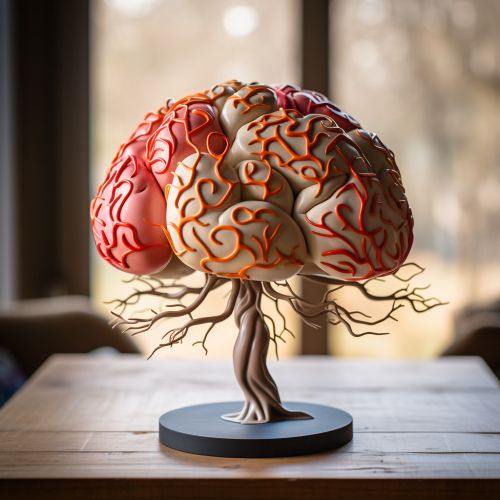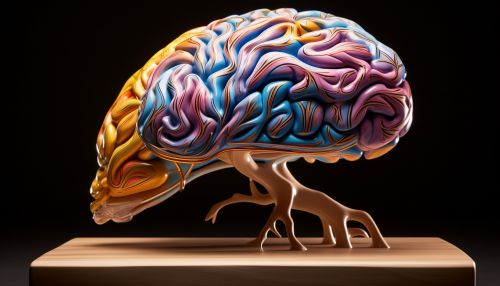Neuroscience of Stress
Introduction
Stress, a ubiquitous part of human life, has profound implications on the neurobiological processes of the brain. The neuroscience of stress explores how stressors, both acute and chronic, affect the brain's structure, function, and behavior. This article delves into the intricate mechanisms of stress response, the neuroanatomical structures involved, and the long-term effects of stress on the brain.


Neurobiology of Stress
Stress initiates a cascade of neurochemical events that can be categorized into immediate and delayed responses. The immediate response, often referred to as the "fight or flight" response, is mediated by the sympathetic nervous system (SNS) and the hypothalamic-pituitary-adrenal (HPA) axis. The delayed response involves the release of stress hormones, such as cortisol, which can have long-term effects on the brain.
Immediate Stress Response
The immediate stress response is characterized by the rapid activation of the SNS, leading to the release of catecholamines, including adrenaline and noradrenaline. This response prepares the body for immediate action. Concurrently, the HPA axis is activated, leading to the release of corticotropin-releasing hormone (CRH) from the hypothalamus, which in turn stimulates the release of adrenocorticotropic hormone (ACTH) from the pituitary gland. ACTH then triggers the adrenal glands to produce cortisol.
Delayed Stress Response
The delayed stress response involves the continued release of cortisol. This hormone has numerous effects on the brain, including the modulation of memory processes and emotional responses. Chronic exposure to cortisol can lead to alterations in brain structure and function, particularly in regions such as the hippocampus, amygdala, and prefrontal cortex.
Neuroanatomical Structures Involved in Stress Response
Several key brain regions are involved in the body's response to stress. These include the hypothalamus, pituitary gland, adrenal glands, amygdala, hippocampus, and prefrontal cortex.
Hypothalamus
The hypothalamus plays a central role in the immediate stress response. It produces CRH, which triggers the release of ACTH from the pituitary gland.
Pituitary Gland
The pituitary gland, under the influence of CRH, releases ACTH into the bloodstream. ACTH then stimulates the adrenal glands to produce cortisol.
Adrenal Glands
The adrenal glands produce cortisol in response to ACTH. Cortisol, a glucocorticoid, has widespread effects on the body and brain, including the modulation of memory processes and emotional responses.
Amygdala
The amygdala, a key player in emotional processing, is particularly sensitive to stress. It plays a crucial role in fear conditioning, a process that is often dysregulated in stress-related disorders.
Hippocampus
The hippocampus, a region critical for memory formation and spatial navigation, is particularly vulnerable to the effects of stress. Chronic stress can lead to hippocampal atrophy, a reduction in the size of the hippocampus.
Prefrontal Cortex
The prefrontal cortex, involved in executive functions such as decision-making and impulse control, is also affected by stress. Chronic stress can impair the functioning of the prefrontal cortex, leading to cognitive deficits.
Long-Term Effects of Stress on the Brain
Chronic stress can have profound long-term effects on the brain. These effects can manifest as changes in brain structure, function, and behavior.
Structural Changes
Chronic stress can lead to structural changes in the brain, including atrophy of the hippocampus and prefrontal cortex, and hypertrophy of the amygdala. These changes can result in memory deficits, impaired executive function, and heightened emotional responses.
Functional Changes
Chronic stress can also lead to functional changes in the brain. These include alterations in neurochemical systems, such as the serotonin, dopamine, and glutamate systems, which can affect mood, motivation, and cognitive function.
Behavioral Changes
The structural and functional changes induced by chronic stress can lead to behavioral changes. These can include increased anxiety, depression, and other stress-related disorders.
Conclusion
The neuroscience of stress is a complex field that explores the intricate ways in which stress affects the brain. Understanding these mechanisms is crucial for developing effective interventions for stress-related disorders. While stress is an inevitable part of life, its impact on the brain can be mitigated through various strategies, including stress management techniques, lifestyle modifications, and pharmacological interventions.
